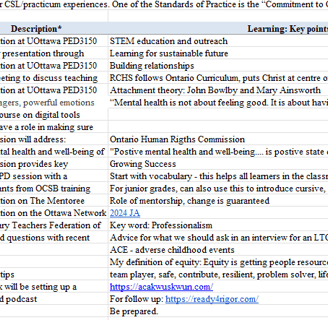Join me
Creating an Urban Community Cohort for teaching students involves designing a program that addresses the unique needs and challenges of urban communities. Here's a sample outline for an Urban Community Cohort in teaching students:
Program Title: Urban Futures Learning Community
Goals:
1. Empowerment: Empower students to become active, informed, and engaged members of urban communities.
2. Community Connection: Foster strong connections between students and the local urban community.
3. Civic Responsibility: Instill a sense of civic responsibility and social justice advocacy.
Structure:
1. Orientation and Team-building (Week 1-2):
- Introduction to the program goals and expectations.
- Ice-breaking activities to build a sense of community.
- Team-building exercises to encourage collaboration.
2. Urban Studies Curriculum (Week 3-10):
- Courses on urban sociology, public policy, and community development.
- Workshops on understanding the challenges specific to urban communities.
- Guest lectures from local experts, community leaders, and policymakers.
3. Service Learning Projects (Week 11-20):
- Collaborative projects within the local community to address real issues.
- Projects might include community gardens, mentorship programs, or neighborhood improvement initiatives.
- Reflection sessions to connect service experiences with academic learning.
4. Community Engagement and Networking (Week 21-26):
- Opportunities for students to engage with local organizations and community events.
- Networking sessions with professionals in urban development, social work, and education.
- Field trips to key urban landmarks and community centers.
5. Capstone Project (Week 27-30):
- Culmination of the program with a capstone project addressing a specific urban challenge.
- Presentations to peers, faculty, and community members.
- Integration of academic knowledge, practical skills, and community engagement.
6. Reflection and Future Planning (Week 31-32):
- Group reflection on personal and collective growth.
- Individualized career counseling and guidance.
- Planning for continued community involvement beyond the program.
Teaching Methods:
- Experiential Learning: Emphasize hands-on experiences and real-world problem-solving.
- Guest Speakers: Bring in professionals and community leaders to share their insights.
- Interdisciplinary Approach: Combine insights from sociology, economics, education, and other relevant fields.
- Technology Integration: Use online platforms for collaborative projects and community engagement.
Evaluation:
- Assessment of Service Projects: Evaluation of the impact and effectiveness of community projects.
- Reflective Journals: Encourage students to maintain journals to reflect on their experiences and learning.
- Capstone Project Evaluation: Assess the quality of research, problem-solving, and presentation skills.
This sample Urban Community Cohort aims to provide students with a holistic learning experience that integrates academic knowledge, community engagement, and personal growth. Adjustments can be made based on the specific needs and characteristics of the urban community in question.



